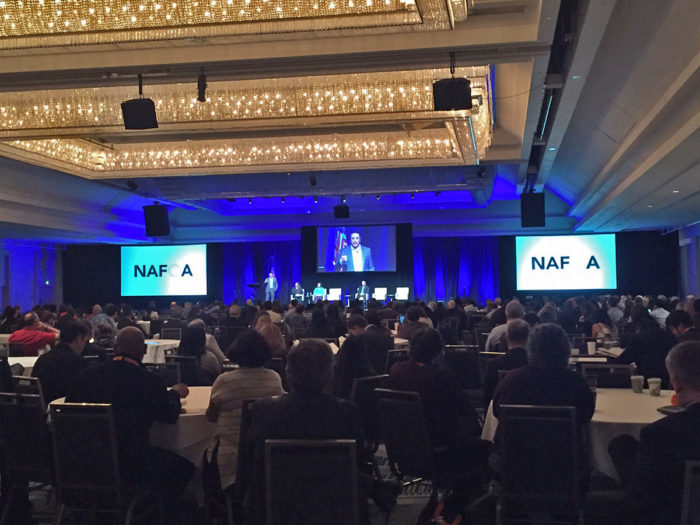Travois is proud to be a corporate partner of the Native American Finance Officers Association (NAFOA). The NAFOA conference, educational programming and useful publications help us do our work. In addition to all of this, NAFOA provides thought leadership.
At their most recent conference, an address by Standing Rock Sioux Tribal Chairman Dave Archambault II caused me to reflect on some of my deeply held assumptions.
Travois is committed to economic development in Indian Country. We believe that infrastructure projects like those we’ve done with NTUA, Pueblo of Laguna and GCI have deep community impacts.
In a panel discussion that included a representative of Dakota Access Pipeline financier Wells Fargo Bank, the chairman laid out the centuries of history and policy that led the Water Protectors to focus the eyes of the world on #NoDAPL.
The chairman raised two 19th century events: the laying of the railroad across tribal lands and the taking of the Black Hills. He did not dwell on these two terms, but they stood out to me as if in neon lights. He described the railroad, which facilitated the collapse of the buffalo population, as an infrastructure project. He referred to the taking of the Black Hills for mining as a form of economic development.
I had difficulty focusing on the rest of his remarks because of how much his artful use of these two terms struck me. That infrastructure and economic development are good things is an article of faith to me. Thinking of the horrors of the colonial and termination eras in terms of these words that are so important to me, that I say so often, was a shock.
Travois confronts, successfully I believe, a challenge every day. How do we, as a non-tribal entity, help tribes reach their goals without imposing outside models of development. First of all, we could not adhere to our motto (“You know where you want to go, let us pull some of the weight for you”) without the help of our amazing advisory board.
Second, our founders, David W. Bland and Marianne Roos, and our current CEO, Elizabeth Glynn, remind us constantly that sovereignty is the source of tribes’ strength. Sovereignty means respecting tribal decision-making, listening to tribal leaders about their goals and then working to accomplish them.
Anyone who has followed the Water Protectors’ historic stand against injustice has learned much from what the chairman has had to say. It was a reminder to me that I cannot always assume that the norms, the lingo and the thinking of my industry are the best fit for my clients.
It was a reminder that Travois’ job is not to identify solutions to community problems. Travois’ job is to identify change agents working in American Indian, Alaska Native and Native Hawaiian communities.
Our job is to listen to them and support them as they build consensus around solutions. Once that community consensus exists, it is our job to go all out for our clients until their vision becomes a reality.
If you have a vision for your community, share it with us on this blog, on social media or by reaching out to a Travois staff member. Let’s start the journey toward new housing and better jobs together.


